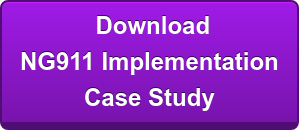
Today: US House Blockchain Promotion Act, Minnesota TAP Surcharge
US House Blockchain Promotion Act
Congresswoman Doris Matsui (D-CA) and Congressman Brett Guthrie (R-KY) introduced H.R. 6913, the “Blockchain Promotion Act of 2018,” which would establish a working group of stakeholders across the federal government and private industry to establish a common definition of blockchain. The Act would direct the Department of Commerce to establish a blockchain working group to recommend a consensus-based definition of the technology. The working group would also consider recommendations for the National Telecommunications and Information Administration (NTIA) and Federal Communications Commission (FCC) to undertake a study that would examine the potential impact of blockchain on spectrum policy and opportunities for the adoption of blockchain to promote efficiencies within the Federal government.
“Blockchain technology could transform the global digital economy. Opportunities to deploy blockchain technology ranges from greatly increased transparency, efficiencies and security in supply chains to more-opportunistically managing access to spectrum,” said Congresswoman Matsui. “This bipartisan bill will bring a broad group of stakeholders together to develop a common definition of blockchain, and, perhaps even more importantly, recommend opportunities to leverage the technology to promote new innovations. I am pleased to work with Congressman Brett Guthrie on this effort.”
“As our economies become increasingly digital, more organizations are turning to blockchain to keep track of their business transactions,” said Guthrie. “Blockchain can be a great resource for innovation and technology, but we must figure out exactly what best common definition is and how it can be used. I was proud to join my colleague Congresswoman Doris Matsui to introduce the Blockchain Promotion Act to better understand blockchain and its role in our digital economy.”
Minnesota TAP Surcharge
The Minnesota PUC is seeking comment in connection with its review of the Telephone Assistance Plan (TAP). TAP is a program that provides monthly bill credits to low-income telephone subscribers. The bill credits are funded by a monthly surcharge on every wireline access line in the state. The current TAP credit of $3.50 per month and the current surcharge is $.03 per line was set by the PUC in 2013.
The PUC seeks comment on what changes, if any, it should make to the TAP credit and/or surcharge levels. The PUC also notes that consumers and stakeholder groups have informally suggested that the TAP credit may be too low compared to current telephone rates. Accordingly, the PUC asks if it should re-examine the level of the TAP credit. Should it take any other actions related to enhancing the effectiveness of the TAP program? Comments are due November 2, 108; reply comments are due November 13 2018.





